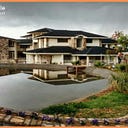Encouraging Preschoolers’ Cognitive Development with Books and Shared Reading
Children are immersed in a very high social world from the moment they’re born. This social world includes not solely people such as parents, siblings, lecturers, and classmates, however, conjointly objects and values that are a part of their culture and Ecole Globale girls boarding school include cognitive development as a part of their curricular. All of those things give a context for a child’s psychological feature growth and development.
Reasoning and problem resolution
In the preschool years, youngsters decide to justify how things work and why things occur. Whereas their explanations will typically appear far-fetched to adults, their stream of how and why queries show a real desire to reason and solve issues concerning the causes of the events.
To hone in on the natural curiosity of three- to five-year-olds, lecturers ought to cause thought-provoking queries as they read aloud to their students. Teachers of the best boarding school in Dehradun ought to attempt to help youngsters understand the natural causes of phenomena to push their psychological feature development on the far side merely seeing superficial changes within the appearance of things, a psychological feature limitation typically displayed at this age.
Symbolic Play
One of the hallmarks of preschooler’s thinking is the ability to have interaction in symbolic representation. A block might become a telephone, or a box might become a car. Preschoolers, not like toddlers, begin to indicate an understanding of the difference between what’s real and what is not.
Make-believe play ought to be inspired by lecturers within the preschool years. Since youngsters typically identify with characters in books, reading stories that show youngsters or alternative characters participating in symbolic play could be a smart technique to inspire children to participate in pretend to play in new or unique ways.
Metacognitive information
Metacognition refers to thinking about one’s thinking. The flexibility to explicitly monitor their one’s own learning or to use mnemonic methods is rudimentary in young youngsters. As an instance, preschoolers understand that it’s easier to remember a small list of things than an extended one, however, wouldn’t spontaneously use a rehearsal strategy to recollect the list. It’s not till beyond the preschool years that youngsters acquire knowledge of methods that affect their own memory and learning.
Memory
Preschoolers’ memories are affected by their previous information. Kids at this age remember new concepts and ideas more simply after they have already got a wealth of information concerning the subject at hand than when they know very little about the subject. Youngsters ages three to five also will higher keep in mind new ideas if they’re placed into a meaningful context, or if they’re learned through hands-on experiences.
This article is submitted by the best school in Dehradun.
